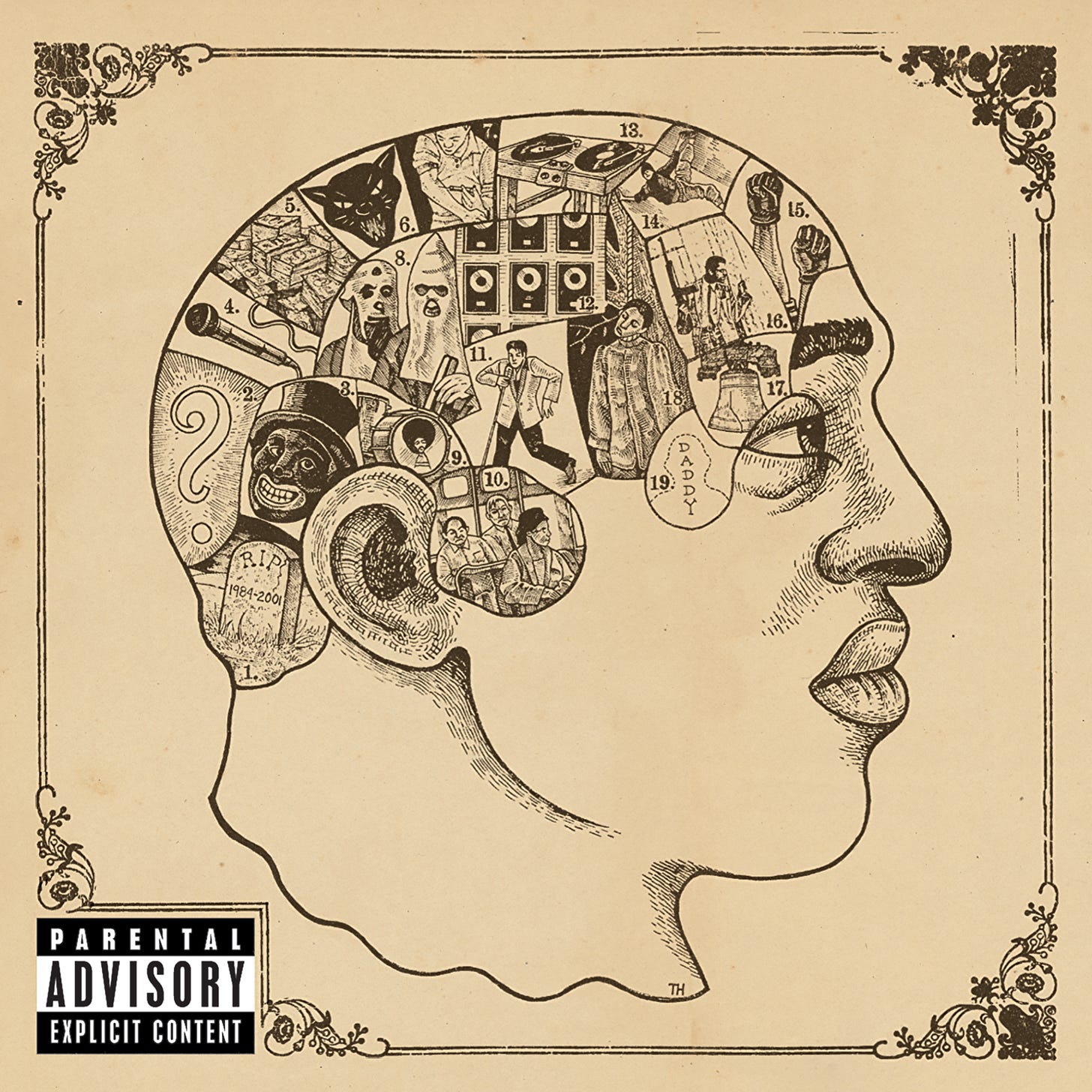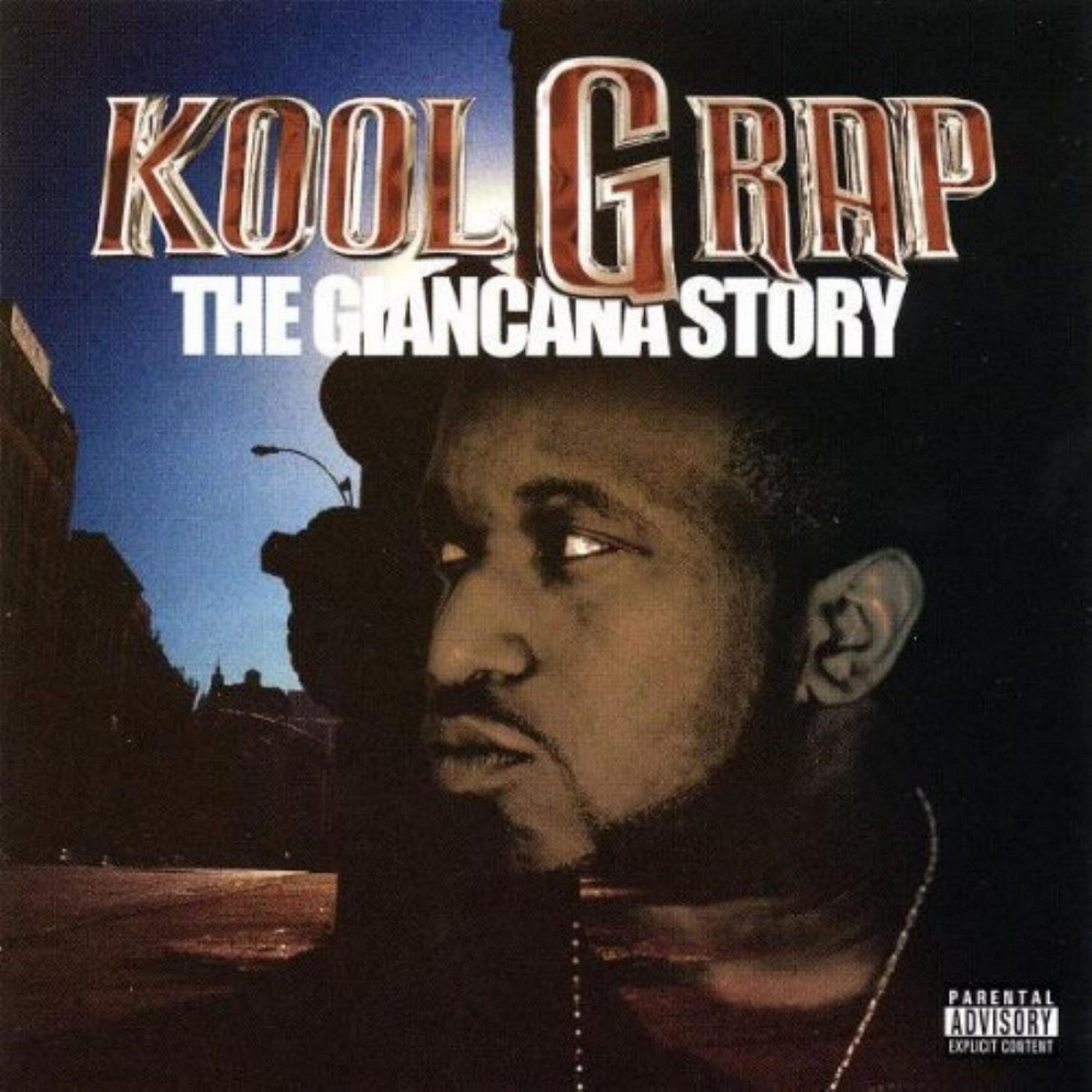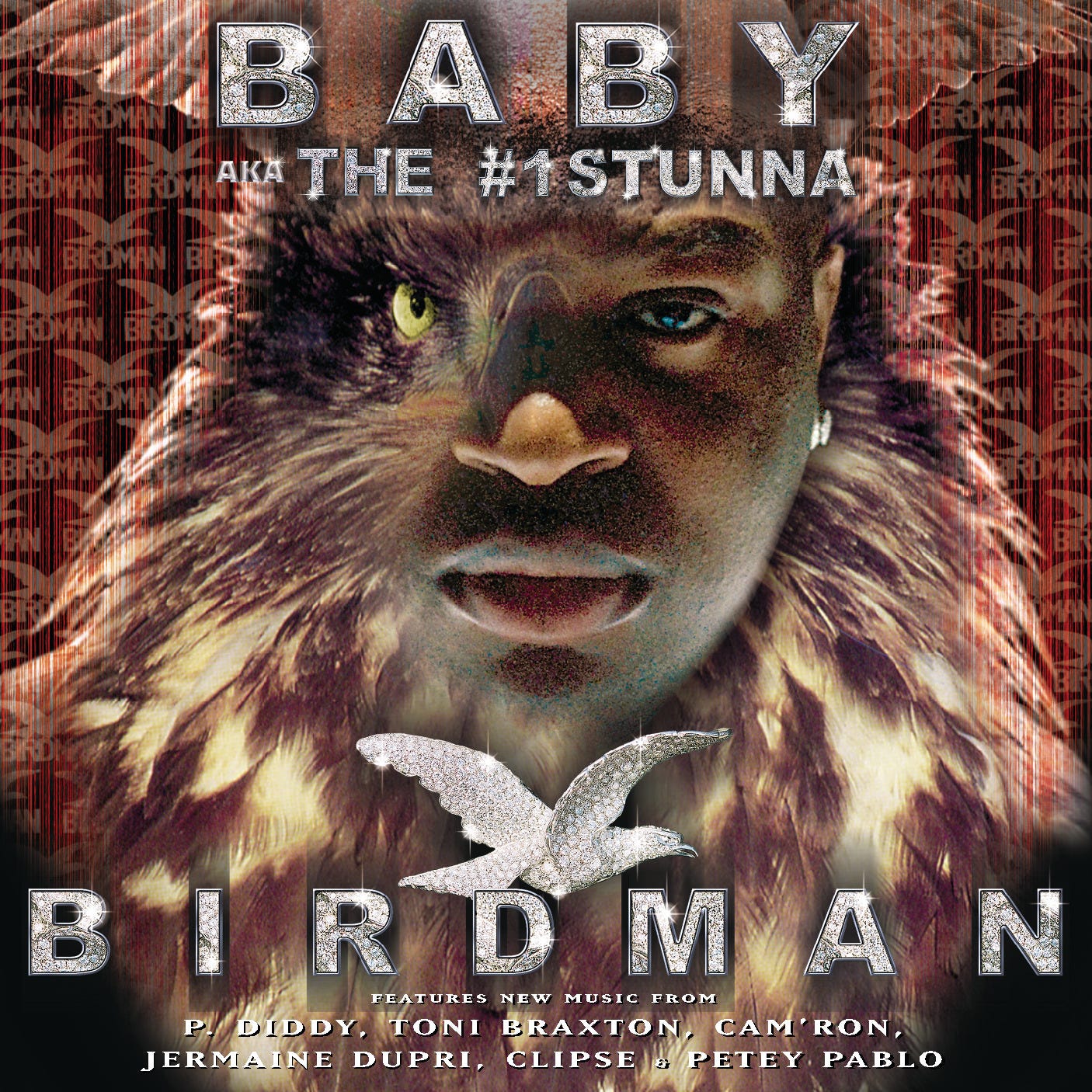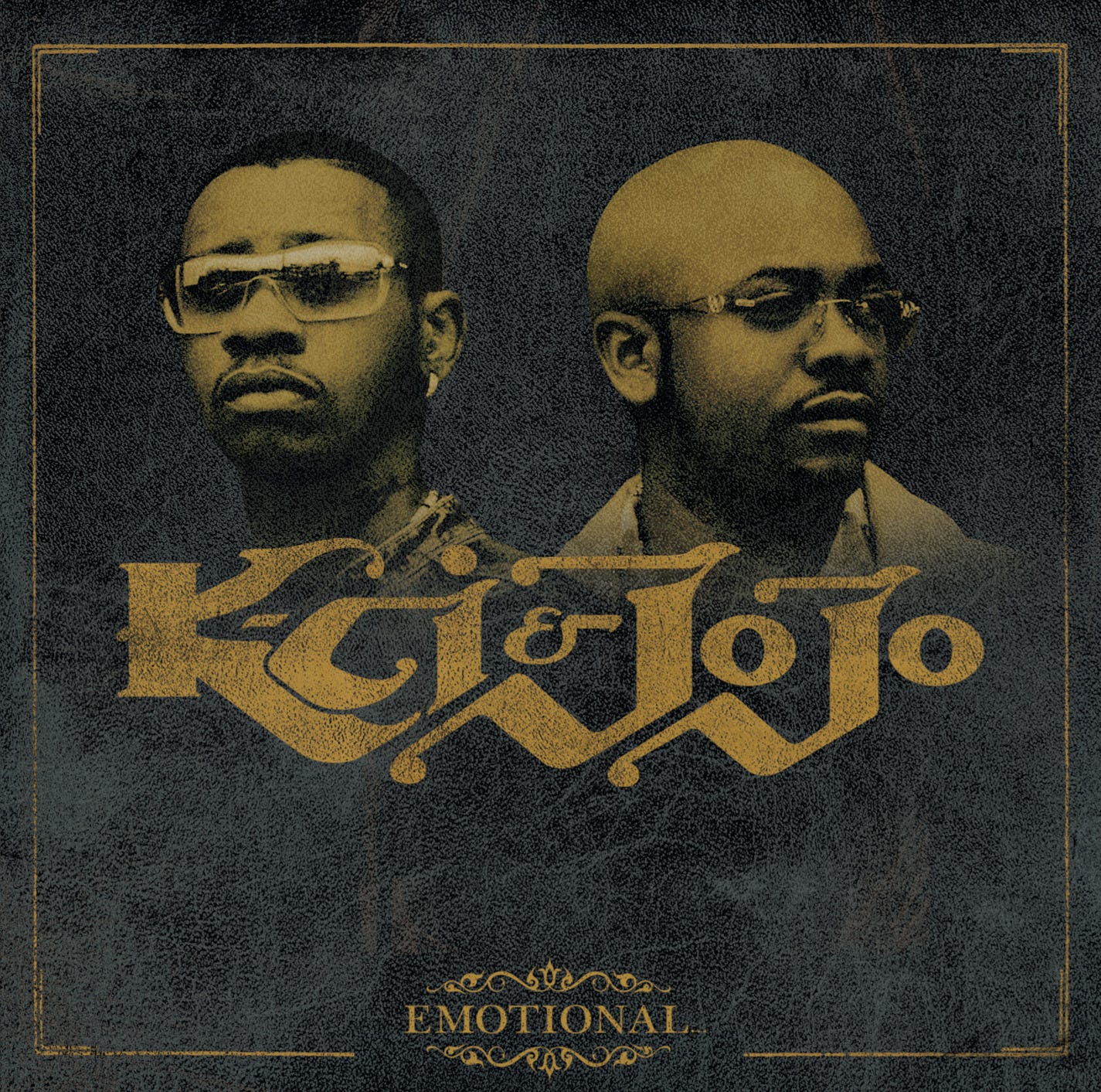On This Day in Music: November 26, 2002
These nine albums were released on November 26, 2002, twenty years ago today.
The Roots — Phrenology
The Roots' fourth album, the loose and enjoyable Things Fall Apart, helped to establish them as a leading light of the second wave of alternative rap. Phrenology, the band's proper studio follow-up, eventually arrived in late 2002 after considerable fastidious fiddling by the band; the liner notes even give recording dates and, occasionally, biographies for the individual songs, demonstrating just how long the band labored over this album. Coffeehouse music programmers, be warned: Phrenology is not a rehash of Things Fall Apart; instead, it is a demanding, massively ambitious epic that is great and perplexing in equal measure as it tries to advance the very sound of hip-hop itself into the future. — Brandon O’Sullivan
Snoop Dogg — Paid tha Cost to Be Da Bo$$
Paid tha Cost to Be da Bo$$ sounds like a return, and it's a fantastic one, even if Snoop Dogg never fell off the charts. Snoop Dogg, now free from No Limit (though still distributed by Priority), assembled a stellar production team and an eclectic roster of guest artists for his sixth studio album. Two of the Neptunes' produced songs, From tha Chuuuch to da Palace and Beautiful, stand out as the album's high points. Rap purists, however, should skip to The One and Only for a seamless fusion of West Coast and East Coast styles since it features the first recorded collaboration between Snoop Dogg and DJ Premier. Snoop Dogg is a reliable individual who can keep a lengthy, eclectic record together. — Brandon O’Sullivan
Kool G Rap — The Giancana Story
The Giancana Story was licensed to a Koch subsidiary after being delayed for nearly a year as Rawkus sorted out its increasingly complicated label ties. Still, it didn't slow down one of the greatest rappers of all time. Kool G's third solo album is a rare example of the hip-hop industry being closer to a veteran than when he started. Please don't call it a return since he never left—he recorded continuously throughout the '90s. Everything else is the kind of extreme rap that hip-hop enthusiasts have come to expect from a true master: dark wit and heavy venom. — Harry Percy Brown
2Pac — Better Dayz
Even though it came out on the eve of 2Pac's busiest posthumous year, Better Dayz is not to be forgotten. With a full documentary (with soundtrack), two novels, and another double album all scheduled for release this year, it's easy to miss this one. Despite being a long two-disc compilation, it benefits significantly from the wealth of still-compelling material by one of the two or three finest rappers in history and the exceptional assembling by executive producers Suge Knight and Afeni Shakur, 2Pac's mother. Only a few of the songs have appeared before, on collections like Knight's Chronic 2000: Still Smokin' or the soundtrack of The Show (1995). It's the finest album by or about the late 2Pac, and it's a good sign for the future of rap music. — Nehemiah Dawson, Jr.
Busta Rhymes — It Ain’t Safe No More…
It Ain't Safe No More follows in the tradition of loose-cannon classics such as 1997's When Disaster Strikes and 2001's Genesis and may refer either to the increased risk of terrorism in Busta's hometown around 2002 or to the fact that rap's most volatile and unpredictable personality is back and bigger than ever. When he's on, however, he's better than ever. For example, the album's title track boasts a P-Funk chorus and a colorful, synth-heavy production over some of the sharpest spitfire raps heard on any hip-hop LP this 2000s decade. It Ain't Safe No More showcases Busta Rhymes at the height of his unique talent and charisma, except for a few exaggerated performances and quasi-epic productions. — Philemon Hayes
Jennifer Lopez — This Is Me… Then
Please ignore the fact that the title makes it seem like a compilation or that there is a central theme to the album (there isn't), and focus instead on the music, which is the most powerful, sensual, and top-tier material that Jennifer Lopez has ever created for any of her three albums. The overall impression and the high points are what matter. Here, you'll find an atmosphere that's fashionable and entertaining, with various standout features that give the impression of having been included with no effort. If you think that's simple, check out any late-2000s pop-R&B albums and compare them to this one. — Philemon Hayes
Baby aka the #1 Stunna — Birdman
Brian "Baby" Williams, co-founder of the groundbreaking Dirty South label Cash Money Records, is unafraid to go up to the microphone because he is confident in his talents. By his admission, Baby is more of a talker than a rapper. Knowing this, he wisely recruited the help of R&B heavy hitters like Toni Braxton, Jermaine Dupri, Mannie Fresh, and Cam'ron for his first album. Even if there isn't much to go around, the combination of these talents plus the production abilities of Timbaland and the Neptunes is more than enough to make up for it. The #1 Stunna demonstrates his mastery of music production and mixing on Birdman, an impressive compilation of smooth rhythms placed against a colorfully rich musical background. — Nehemiah Dawson, Jr.
Dru Hill — Dru World Order
Dru Hill may have needed to find a new star member after Sisqó's solo debut propelled two massive singles (including Thong Song and Incomplete) to the top of the charts. In 2002, however, the group reunited and welcomed Sisqó back into the fold, expanding to a quintet with the addition of a fifth member, Skola. Dru World Order, their third album, demonstrates the group's ability to compete with any other R&B group of the day. First, it is primarily independent; over half of the album was produced by Nokio, and most of the composition was done in-house. Moreover, Dru Hill now has a more solid and polished sound thanks to the gospel fervor of their newest member, Skola. The songs are very much the same, and the lyrical topics are repetitive, but Dru Hill has the smoothest harmonies of any R&B group, so they can cover up any flaws. — Jamila Wamuiru
K-Ci & JoJo — Emotional
K-Ci & JoJo's fourth album, Emotional, is unabashedly honest and heartfelt and one of the duo's first to entirely reject the influence of hip-hop, maybe compensating for the negativity widespread in the rap industry. Given the popularity of rap songs that sound like other genres, Cedric and Joel Hailey's undying passion for the sweet love songs of their youth is all the more remarkable. Unfortunately, the one issue with Emotional is a major one. The soft melodies and conventional arrangements aren't made up for by K-Ci & JoJo's outstanding voices and heartfelt performances. When most rap/R&B crossovers pair a male rapper with a female R&B singer, the combo is swimming upstream against the current and struggling to stay afloat; Emotional isn't powerful enough to swim against the current. — Jamila Wamuiru










